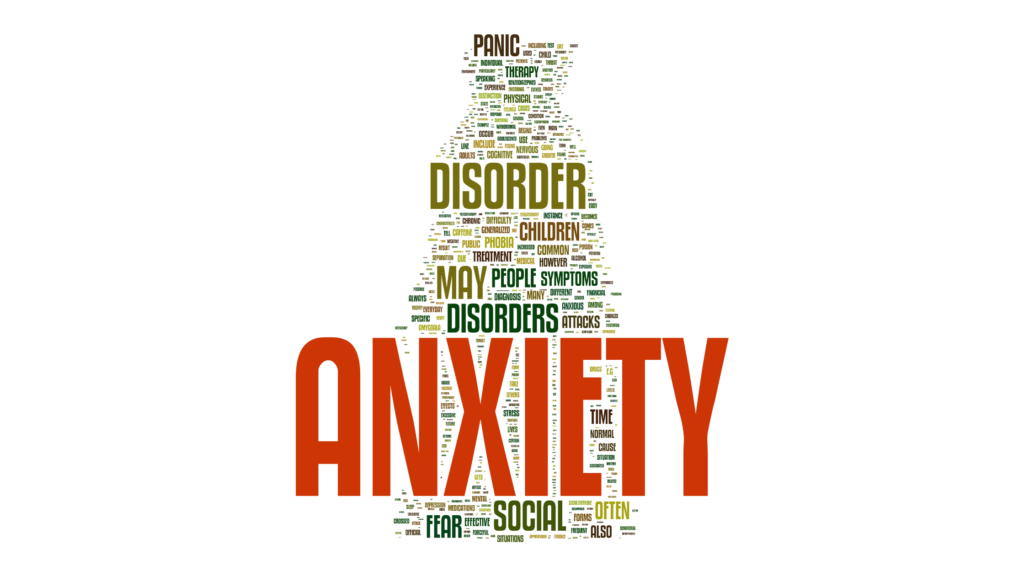
Anxiety and ADHD often go hand in hand—and for many parents, it’s hard to know where one ends and the other begins. Children with ADHD are wired to feel and experience the world intensely. Their brains are constantly processing, filtering, and reacting, which can lead to emotional overload, difficulty regulating big feelings, and often a deep undercurrent of worry.
While ADHD is often associated with inattention or hyperactivity, it’s easy to overlook the anxiety that can sit quietly underneath. Many children with ADHD experience high levels of worry—whether it’s performance-related (“What if I can’t do this?”), social (“Will the other kids laugh at me?”), or generalised anxiety that’s hard to name. And when that anxiety builds up, it can look like defiance, procrastination, meltdowns, or even physical symptoms like tummy aches, poor sleep, or nail biting.
Why Is Anxiety So Common in Children with ADHD?
Children with ADHD are navigating a world that often feels overwhelming. From sensory overload and school expectations to social struggles and repeated experiences of “getting it wrong,” many of them internalise a sense of failure or not being good enough. Over time, this can chip away at their self-confidence and lead to chronic worry or perfectionism.
But the roots of anxiety often go deeper than just day-to-day stressors. When we look through a holistic lens, we see anxiety as something that’s woven into the child’s physical, emotional, and energetic experience. We consider:
Birth trauma or early stressors that have affected the development of the nervous system.
Mouth breathing or tongue ties, which can impact oxygen flow and keep the body in a low-grade fight-or-flight state.
Gut imbalances and food sensitivities, which can affect mood and neurotransmitter production.
Environmental stressors, such as EMFs, screens, overstimulation, or a lack of downtime.
Family history or inherited predispositions that influence how a child processes stress.
Anxiety is the nervous system’s way of saying, “I don’t feel safe.” And our job is to gently create the conditions for safety, both internally and externally.
Creating Safety from Inside Out
Here are a few supportive lifestyle shifts that can make a real difference:
Establish predictable routines – Children with ADHD and anxiety thrive on rhythm. A calm, predictable routine helps reduce decision fatigue and provides a sense of control.
Prioritise rest and sleep – Anxiety often worsens when a child is overtired. Gentle bedtime routines, reducing screens before bed, and ensuring physical comfort can help.
Encourage movement and play – Physical activity is one of the best ways to regulate the nervous system. Dancing, jumping on a trampoline, swinging, or even better time in nature utilising natural daylight and sunshine all support grounding.
Reduce sensory load – Busy environments, clutter, or even certain clothing textures can be overwhelming. A calm, soothing space helps the nervous system settle.
Address breathing patterns – Many anxious children breathe shallowly or through the mouth, especially during sleep. If there’s a history of mouth breathing, tongue tie, or sinus issues, consider exploring myofunctional therapy, which helps retrain the muscles involved in breathing and swallowing.
Consider craniosacral therapy or osteopathy – Gentle bodywork can help release tension from the body, especially if anxiety is linked to birth trauma or a heightened stress response.
How Homeopathy Can Support Anxious Child?
Homeopathy views anxiety not as something to suppress, but as a signal of imbalance that can be gently supported from within. Remedies are chosen based on the whole child—not just their anxious thoughts, but how they sleep, how they express emotion, their fears, physical symptoms, and temperament.
When the right remedy is given, children often begin to feel more grounded, less reactive, and more able to cope with stressors that previously overwhelmed them.
🌼 Common Remedies for Anxiety in ADHD
Argentum Nitricum – For children who worry before events or new experiences. They may rush, talk fast, crave sweets, and experience digestive issues with nerves.
Phosphorus – For bright, sensitive children who are affectionate and anxious when alone. They may be fearful of the dark, thunderstorms, or being separated from loved ones.
Arsenicum Album – For anxious perfectionists who worry about their health or safety. These children may be restless, easily chilled, and struggle to fall asleep without reassurance.
Calcarea Carbonica – For cautious children who resist change and feel anxious in unfamiliar settings. They may sweat easily and prefer predictability.
Silicea – For shy, self-conscious children who fear failure or being judged. They tend to internalise their anxiety and may experience constipation or low stamina.
Pulsatilla – For clingy, emotionally sensitive children whose anxiety improves with affection and reassurance. Their moods may shift easily, and they often dislike stuffy environments.
Gelsemium – For children who freeze under pressure—such as during tests or performances—appearing foggy or unresponsive when anxious.
Always consult a qualified homeopath when possible, as the correct remedy is best selected based on the full picture of your child.
Every Cloud Has Silver Lining
Anxiety in children with ADHD is common—but it’s also something we can lovingly support. Rather than seeing anxiety as “just part of ADHD,” we can ask deeper questions: What does this child need to feel safe? How can we calm their environment, their body, and their inner world?
With the right tools—like homeopathy, breath awareness, bodywork, and nervous system nourishment—children can begin to feel more centred, secure, and connected. And from that place, focus, resilience, and joy begin to blossom.
If you want to learn more about homeopathy, natural remedies and holistic lifestyle for the whole family, I invite you to join our Mother’s Herbal Club. You will have the opportunity to join our weekly live zoom workshops and Q&As, watch all the past recordings and join our vibrant, supportive WhatsApp community for instant advice and chitchat ![]()
